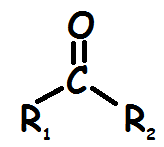The
Paleo Diet and its Benefits
So paleo diets are something that I have
personal experience with. My parents were both on the edge of diabetes and in
response they changed their life style to be paleo. Basically what they did was
eating a diet that did not include legumes, grains, sugar, and minimal diary. The
point of the diet is to eat like our Paleolithic ancestors and because they
were basically healthier. One fundamental thing people living a paleo lifestyle
focus on is the idea that humans are basically allergic to grains. The thought
is that people are allergic to grains and that we all have varying reactions to
grains, but that we don’t notice them because it is something we have been
living with our entire lives. In short it means eating the way humans are
genetically designed to.
Heath
Benefits Include…
1. Weight loss.
2. You’ll feel full faster.
3. Increased iron intake.
4. Vegetables act as an anti-inflammatory.
The
Cons to a Paleo Diet…
1. It’s expensive.
2. Consuming no diary isn’t great for your bones.
3. Most people have to take vitamins.
4. It’s hard for vegetarians because they can’t eat
beans.
More
information on the Paleo diet can he found here







